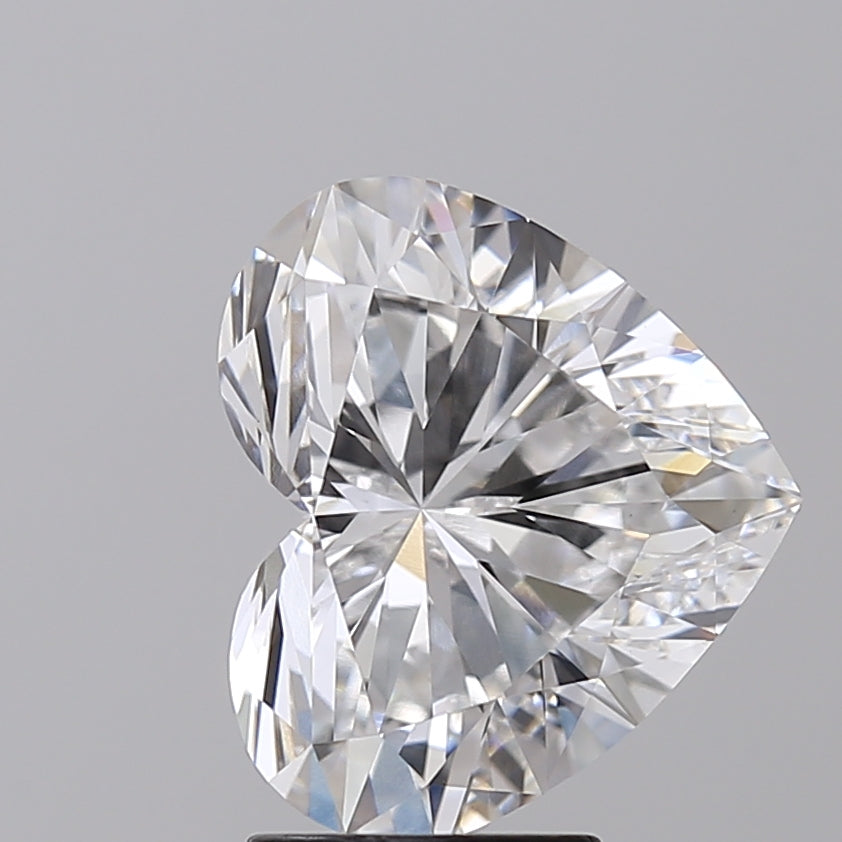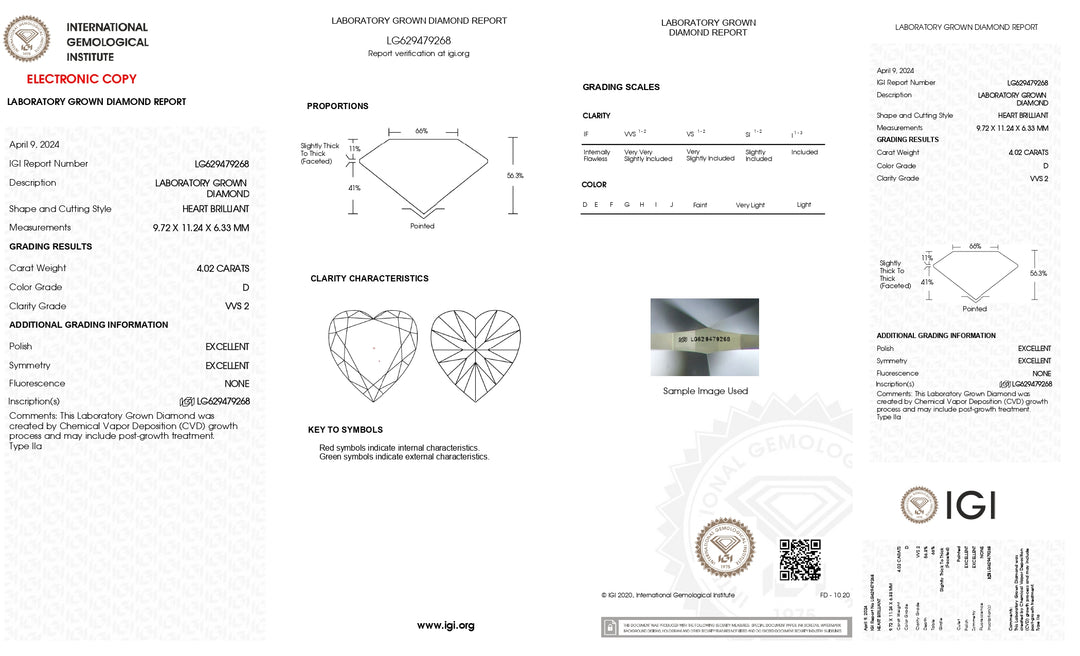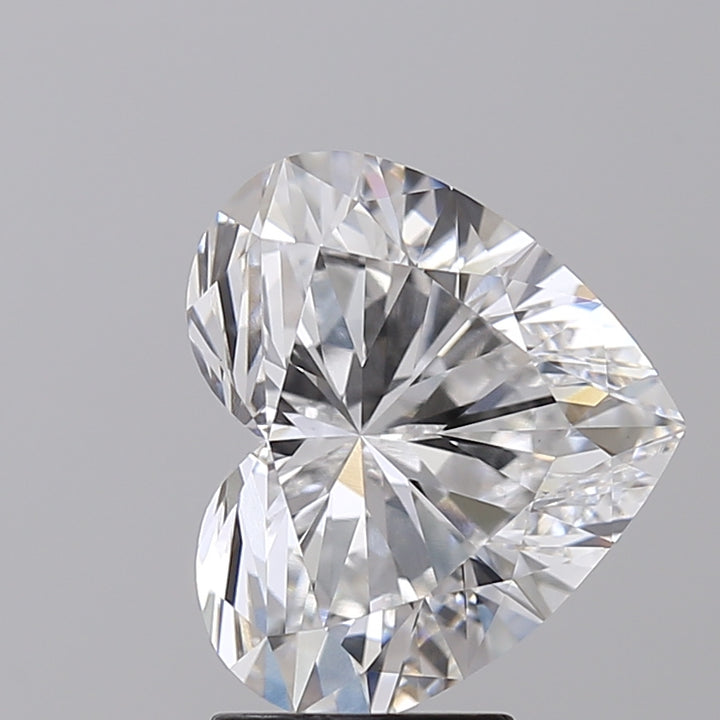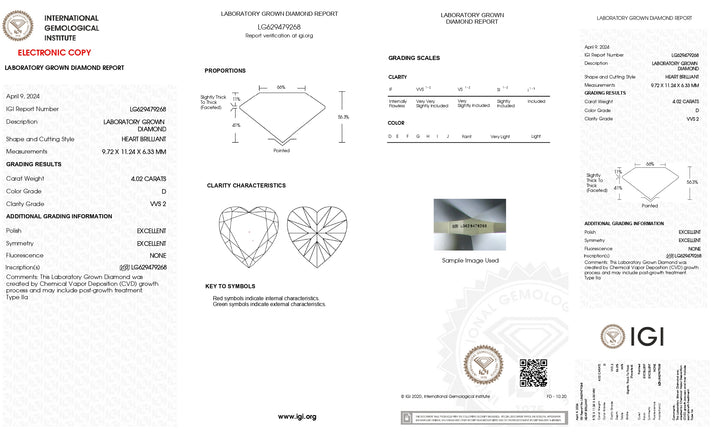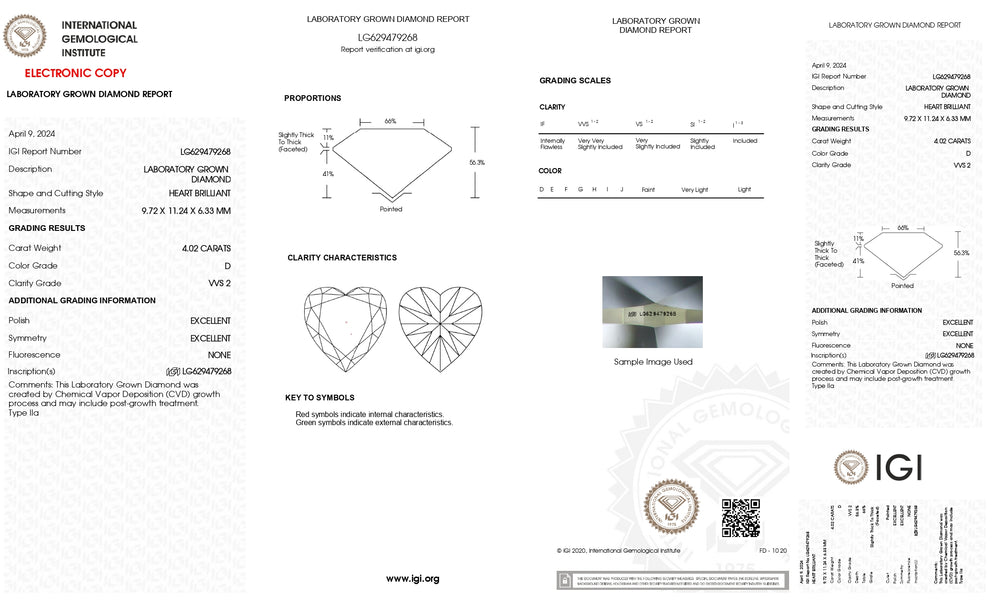IGI Certified Lab-Grown Diamond
100% Secure Checkout (UPI, Cards, Netbanking)
Insured Worldwide Shipping
Direct-from-Manufacturer Pricing
Découvrez une élégance inégalée avec ce diamant cultivé en laboratoire de 4,02 CT CT de 4,02 ct, présentant une couleur D vierge et une clarté exceptionnelle.
- Taper: CVD (dépôt de vapeur chimique) cultivé en laboratoire
- Certification: IGI certifié pour la qualité et l'authenticité vérifiées
- Forme: Coup de cœur - une forme romantique et unique avec un attrait intemporel
- Poids carat: 4.02 CT. - une taille substantielle qui captive avec sa présence
- Grade couleur: D - incolore, offrant l'apparence la plus pure et la plus brillante
- Clarté: VVS2 - très très légèrement inclus, assurant une clarté exceptionnelle
- Polonais: Excellent - finition de surface supérieure pour une brillance rayonnante
- Symétrie: Excellent - facettes parfaitement alignées pour une brillance optimale
- Mesures: 11,24 x 9,72 x 6,33 mm - Coupé précisément pour améliorer sa forme frappante
- Diamètre moyen / rapport: 0,86 - proportions équilibrées pour un look gracieux
- Profondeur: 56,30% - Conçu pour une réflexion et une brillance optimales
- Pourcentage de table: 66,00% - Idéal pour l'éclat et la clarté exceptionnels
- Ombre: Aucun - Couleur D pure sans teintes supplémentaires
Ce diamant offre un mélange de charme romantique et de savoir-faire supérieur, ce qui en fait un choix extraordinaire pour un morceau de bijoux luxueux et significatif.
Lab Grown Diamonds – Your Questions Answered
Are lab grown diamonds real diamonds? +
Yes. Lab grown diamonds are 100% real diamonds with the same chemical structure, optical brilliance, and hardness as mined diamonds. They are grown in advanced labs using CVD or HPHT technology that replicates natural diamond formation.
How are lab grown diamonds made? +
Lab grown diamonds are created using two scientific methods: CVD (Chemical Vapor Deposition) or HPHT (High Pressure High Temperature). Both recreate natural conditions under controlled environments to form real crystalline carbon diamonds.
Do lab grown diamonds look different from mined diamonds? +
No. Visually, lab grown diamonds and natural diamonds appear identical. The brilliance, sparkle, fire, and clarity are the same — even trained gemologists rely on advanced instruments, not eyesight, to differentiate them.
Are lab grown diamonds durable for daily wear? +
Yes. Lab grown diamonds have the same hardness rating of 10 on the Mohs scale. They are highly durable, scratch-resistant, and ideal for everyday jewelry such as rings, earrings, bracelets, and pendants.
Why do people choose lab grown diamonds? +
Consumers choose lab grown diamonds for their exceptional value, ethical sourcing, eco-friendly creation, and identical beauty compared to mined diamonds — often at a significantly better price point for the same quality.
Are lab grown diamonds certified? +
Yes. Lab grown diamonds are certified by the same global laboratories as natural diamonds — including IGI and GIA. Each diamond comes with a grading report detailing its 4Cs and growth method.
Is there any resale value for lab grown diamonds? +
Like most fine jewelry, resale value depends on demand, quality, and market conditions. Lab grown diamonds offer tremendous upfront value, making them increasingly popular for engagement rings and high-carat jewelry.
Are lab grown diamonds environmentally friendly? +
Yes. Lab grown diamonds avoid traditional mining and use significantly fewer natural resources. They are considered a more sustainable and ethical choice for modern consumers.
Can a jeweller set a lab grown diamond in any type of jewelry? +
Absolutely. Lab grown diamonds can be set in any ring, necklace, bracelet, or earring design — just like natural diamonds. They are compatible with gold, platinum, and all popular setting styles.
Do lab grown diamonds come in all shapes and sizes? +
Yes. Lab grown diamonds are available in all shapes — round, oval, emerald, cushion, radiant, pear, marquise, princess, heart, and more — ranging from under 1 carat to 10 carats+.


